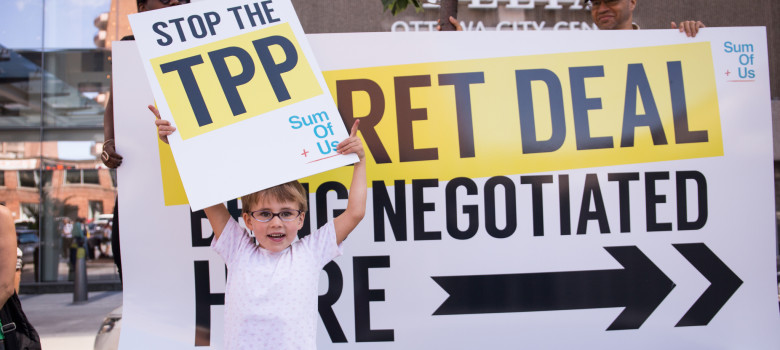Now signed but still not ratified, the TPP isn’t budging much with the public as observed by a recent Leger poll where 53 per cent of Canadians mention they’re not very or not at all familiar with the international trade agreement but yet just under one-half of them are in support of the TPP. Still, Minister of International Trade, Chrystia Freeland, continues to emphasize that signing the TPP wasn’t an automatic ratification and that the government will continue to push forward with its plans for a rigorous Parliamentary and public review of the agreement.
Our recent post explored expanded border measures and the possible pressure put on border guards to make difficult legal decisions related to apprehending goods entering the country – in this post we explore the matter of safeguards currently in place in Canadian law but which have been put aside in the TPP.
Current Safeguards
Within current Canadian legislation, there are several safeguards to reduce the risk of detention for importers and other linked businesses. For example, given that detention can be used by competitors to delay entry of any legitimate goods into the country, limitations are included within the different applicable laws, such as the Copyright Act:
“Subject to subsection (3), the customs officer shall not detain, for the purpose of enforcing section 44.01, the copies for more than 10 working days — or, if the copies are perishable, for more than five days – after the day on which the customs officer first sends or makes available a sample or information to the copyright owner under subsection (1). At the request of the copyright owner made while the copies are detained for the purpose of enforcing section 44.01, the customs officer may, having regard to the circumstances, detain non-perishable copies for one additional period of not more than 10 working days.”
Because being on the hook for something isn’t great for anyone or any business, there are provisions in the Copyright Act that allow for damages against the copyright owner who triggered the proceedings if they are dismissed or discontinued. The law therefore recognizes the potential harm that could be brought onto a business dragged into such proceedings:
“The court may award damages against the owner of copyright who commenced proceedings referred to in subsection 44.04(3) to the owner, importer, exporter or consignee of the copies who is a party to the proceedings for losses, costs or prejudice suffered as a result of the detention of the copies if the proceedings are dismissed or discontinued.”
TRIPS tips not included in TPP
Such safeguards are also aligned with the provisions found in the Trade-Related Aspects of Intellectual Property Rights (TRIPS) Agreement. Those standards, set down by the World Trade Organization, have influenced common policies forged by WTO members in relation to intellectual property. Yet, none are included in the Trans-Pacific Partnership.
Kimberlee Weatherall of the University of Sydney, Australia, actually identifies several safeguards from the TRIPS agreement that are not included in the TPP:
- Art 53.2: requiring release in certain circumstances of goods involving industrial designs, patents, layout-designs or undisclosed information;
- Art 54: the importer (and applicant) shall be promptly notified of the suspension of the release of goods (this applies also to ex officio seizures: art 58(b));
- Art 55: requiring release of the goods if within 10 working days (or 20, if extended), if the authorities have not been informed that proceedings have been initiated, or that the ‘duly empowered authority has taken provisional measures prolong the suspension’;
- Art 55: If proceedings have been initiated, a review, including a right to be heard, shall take place upon request of the defendant with a view to deciding, within a reasonable period, whether suspension measures shall be modified, revoked or confirmed (these to apply also to ex officio seizures: art 58);
- Art 56: authorities to have the power to order the applicant to pay the importer, consignee and owner of the goods compensation for any injury caused to them through the wrongful detention of goods;
- Art 57: competent authorities shall have the authority to give the right holder and importer sufficient opportunity to have any detained goods inspected in order to substantiate the right holder’s claims. The competent authorities shall also have authority to give the importer an equivalent opportunity to have any such goods inspected;
- Art 58: with ex officio seizures, Parties are only allowed to exempt public authorities/officials from liability for remedial measures in those cases where actions are taken or intended in good faith (art 58(c)).

Backers of the TPP will argue that nothing actually stands in the way of TPP countries, like Canada, from amending their current legislations by adding the safeguards. Canada has actually done so in the past in some instances. But that foregoes one of the main principles behind the TPP: a consistent set of rules and a leveled playing field for all. By not having these safeguards as part of the deal signed and agreed by all, Canadian exporters might face unbalanced border measures when it comes to selling IP-related products to partner nations of the agreement. Just like with copyright and patents, the TPP rules point in one direction: more restrictions and fewer enforceable safeguards or limitations to ensure an equitable and fair legal framework.

 Payment
Payment  My Account
My Account